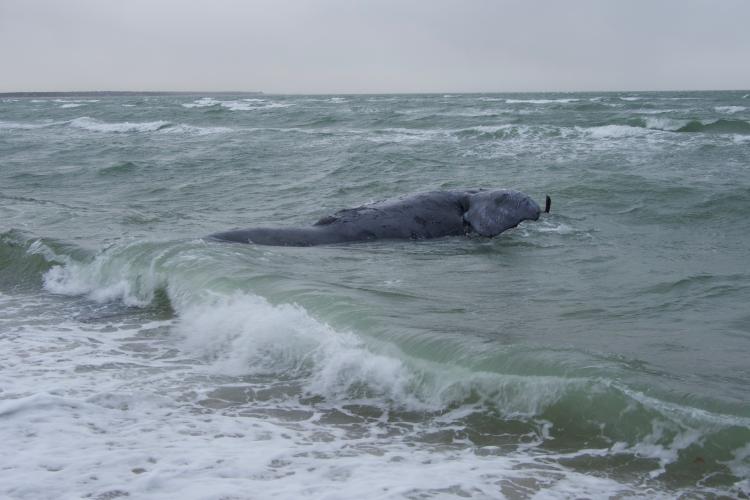Scientists say a North Atlantic right whale that was found dead in the surf off Martha's Vineyard last week suffered from chronic entanglement.
NBC10 Boston is examining the efforts to save the critically endangered animals and their special significance to native people in Massachusetts.
WATCH ANYTIME FOR FREE
>Stream NBC10 Boston news for free, 24/7, wherever you are. |
"Whales in general, we consider them our relatives," said Bettina Washington, the tribal historic preservation officer for the Wampanoag Tribe of Gay Head in Aquinnah.
That's why when a young female right whale or reproductive age washed up on the shores of Martha's Vineyard last week, the Wampanoag people were devastated.
Get updates on what's happening in Boston to your inbox. Sign up for our >News Headlines newsletter.
"They're beyond critically endangered, truthfully, or, you know, in our eyes, they were critically endangered a long time ago," said Washington.
The relationship is so entwined that the right whale is depicted on the Wampanoag Tribe of Gay Head's flag. When scientists needed space to perform the necropsy on the whale, it was moved to tribal lands.
Biologists from a variety of organizations ultimately determined rope deeply embedded in the animal's tail led to her poor health and death.
"For North Atlantic right whales, we are seeing premature deaths. There are far and few between deaths that are natural causes," said Kathleen Collins, senior marine campaign manager at the International Fund for Animal Welfare. "We're seeing deaths attributed to two things — entanglements in in fishing gear, as well as vessel strikes."
This whale, identified as a calf born in 2021, was painfully entangled most of her short life. She was first spotted in 2022 off Canada's coast and a year ago in Cape Cod Bay.
"They did everything they could, but couldn't help her. And, and that was really painful to know that she was in trouble that long," said Washington.
IFAW reports that since 2017, nine right whales have been reported dead due to entanglement — a troubling trend considering there are only about 350 left in existence.
"There is certainly hope for this species, but without concrete action for further protections, whether it be regulations of gear, and higher enforcement of those vessel speed rules, the species is going to continue to have to fight to survive, and we really need to do our part to save them before it's too late," said Collins.
Right now, annual speed and fishing restrictions are in place along the whale's migration route in the Atlantic. It's their calving season, and 17 baby right whales have been spotted so far.
The Wampanoag people held a ceremony for the deceased whale and plan to use its skeletal remains for cultural and educational purposes in hopes that positivity can come from this tragedy.
"Everybody did their part. And we were able to take care of this relative," Washington said. "It's not something that we wanted to do, it was something we were responsible for."
Anyone who spots an injured or stranded whale, dead or alive, should maintain a 150-foot distance, according to NOAA Fisheries.
The sightings can be reported to The Greater Atlantic Marine Mammal Stranding Hotline can be reached at 866-755-6622 and the Southeast Marine Mammal Stranding Hotline at 877-942-5343.


